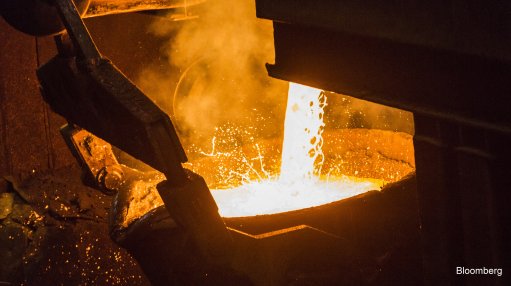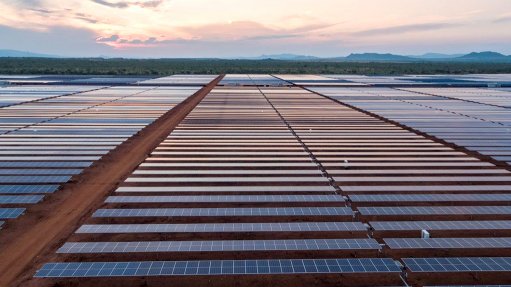Australia puts off penalties in proposed fund to cut emissions
Australia will focus on rewards rather than penalties for limiting greenhouse gases, according to a government paper outlining a new climate policy proposed to start this year.
Prime Minister Tony Abbott’s Liberal-National coalition, vowing to throw out the nation’s existing levy on emitters, last week unveiled final details for an Emissions Reduction Fund to give as much as $2.6-billion to help firms lower Australia’s emissions, the highest per capita in the developed world. The paper does not propose penalties for excess emissions, and government will wait until next year to start defining pollution benchmarks for the nation’s 130 largest emitters.
The new policy will contribute to “global action on climate change, but without a costly and ineffective carbon tax”, Australian Environment Minister Greg Hunt told reporters in Canberra. “What the Emissions Reduction Fund will do is help drive private-sector investment into practical actions, such as cleaning up waste coal-mine gas, cleaning up waste landfill gas, cleaning up methane and energy efficiency on a significant scale.”
Rio Tinto and Chevron are among companies backing the view that Australia can cut emissions without resorting to penalties. The Australian government now faces the challenge of winning over political opponents and demonstrating the plan is an adequate response to climate change, which poses “an immediate threat to Australia’s society and economy,” the United Nations says in a report.
“Government has pushed the hardest and most important question of how to stop emissions growing ever higher to next year,” says Kobad Bhavnagri, head of Australia research at Bloomberg New Energy Finance, in Sydney. “The Emissions Reduction Fund is unlikely to be robust enough to achieve Australia’s commitment of a 5% reduction in emissions.”
Abbott’s victory in last year’s election with the biggest margin in nine years has yet to settle a national debate on how to achieve Australia’s pledge to cut emissions by 5% before 2020. He called the election a mandate to eliminate the Carbon Price Mechanism that Labor enacted in 2011. The policy imposed the world’s highest carbon levy on Australia’s largest emitters.
The coalition has budgeted funds to start its Emissions Reduction Fund as part of its Direct Action policy on July 1. That means the programme could start regardless of whether the opposition Labor or Palmer United parties try to block legislation in the Senate.
“We would prefer to have legislation,” Hunt said. “But our goal is very clear, and we won’t stop until the carbon tax is repealed and Direct Action is implemented.”
The Australian government selected more than a dozen industry and academic officials to help finalise policy details. They received more than 600 submissions in response to initial papers in October and December.
Without referring to penalties, the paper says government will set up a “safeguard mechanism” in July 2015 applying only to about 130 of the largest emitters and new entrants reporting under the National Greenhouse and Energy Reporting Scheme.
“All but the largest emitting businesses will be exempt,” the paper states. “This will enable the safeguard mechanism to be implemented without any new mandatory reporting obligations.”
The Australian government received submissions from Rio, the world’s second-biggest mining company, and Chevron, the world’s third-largest oil company. Officials with the companies declined to expand on their submissions, filed in November, when contacted by email last week.
The Australian government is putting bus-iness interests ahead of community concerns about climate change, says Bernie Fraser, chairperson of the Climate Change Authority.
“With the current alignment of business and government interests, the debate on climate change in Australia seems destined to be lopsided for some time to come.”
The authority, which will be eliminated in the government’s proposed climate plan, says Australia is already seeing the predicted increases in severe bush fires and coastal erosion. The nation should triple its 2020 emissions reduction target to 15% to minimise the need for future increases and match what countries such as the US are doing, he says.
Comments
Press Office
Announcements
What's On
Subscribe to improve your user experience...
Option 1 (equivalent of R125 a month):
Receive a weekly copy of Creamer Media's Engineering News & Mining Weekly magazine
(print copy for those in South Africa and e-magazine for those outside of South Africa)
Receive daily email newsletters
Access to full search results
Access archive of magazine back copies
Access to Projects in Progress
Access to ONE Research Report of your choice in PDF format
Option 2 (equivalent of R375 a month):
All benefits from Option 1
PLUS
Access to Creamer Media's Research Channel Africa for ALL Research Reports, in PDF format, on various industrial and mining sectors
including Electricity; Water; Energy Transition; Hydrogen; Roads, Rail and Ports; Coal; Gold; Platinum; Battery Metals; etc.
Already a subscriber?
Forgotten your password?
Receive weekly copy of Creamer Media's Engineering News & Mining Weekly magazine (print copy for those in South Africa and e-magazine for those outside of South Africa)
➕
Recieve daily email newsletters
➕
Access to full search results
➕
Access archive of magazine back copies
➕
Access to Projects in Progress
➕
Access to ONE Research Report of your choice in PDF format
RESEARCH CHANNEL AFRICA
R4500 (equivalent of R375 a month)
SUBSCRIBEAll benefits from Option 1
➕
Access to Creamer Media's Research Channel Africa for ALL Research Reports on various industrial and mining sectors, in PDF format, including on:
Electricity
➕
Water
➕
Energy Transition
➕
Hydrogen
➕
Roads, Rail and Ports
➕
Coal
➕
Gold
➕
Platinum
➕
Battery Metals
➕
etc.
Receive all benefits from Option 1 or Option 2 delivered to numerous people at your company
➕
Multiple User names and Passwords for simultaneous log-ins
➕
Intranet integration access to all in your organisation


















